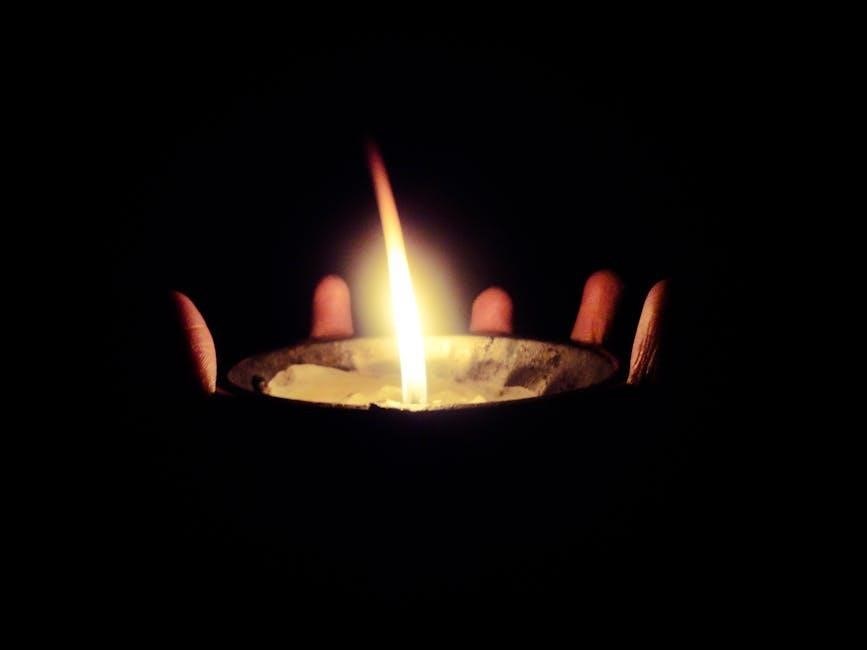The dark night of the soul is a profound spiritual concept describing a period of intense struggle, doubt, and transformation. Rooted in St. John of the Cross’s poetry, it symbolizes a journey through darkness to deeper faith and self-discovery, often marked by feelings of abandonment and inner turmoil. This experience, while painful, is seen as a catalyst for growth, renewal, and a closer connection to the divine. It remains a universal theme across cultures and traditions, offering insights into the human search for meaning and transcendence.
Definition of the Dark Night of the Soul
The dark night of the soul refers to a profound spiritual crisis characterized by intense emotional and psychological turmoil. It is a period of deep introspection and struggle, often marked by feelings of abandonment, doubt, and spiritual desolation. This concept, first articulated by St. John of the Cross in his 16th-century poem, describes a transformative experience where an individual confronts the limits of their ego and understanding, leading to a re-evaluation of their relationship with the divine. The dark night is not merely a moment of sadness but a fundamental reshaping of one’s spiritual and existential framework. It is a universal human experience, transcending religious boundaries, and is often seen as a necessary step toward spiritual growth, self-discovery, and a deeper connection to meaning and purpose.
Historical Context and Relevance
The concept of the dark night of the soul originated in the 16th century through the works of St. John of the Cross, a Spanish mystic and poet. His poem, La Noche Oscura del Alma, laid the foundation for understanding this spiritual crisis as a transformative experience. Rooted in Christian mysticism, the idea gained prominence during the Counter-Reformation, offering a framework for believers to navigate periods of spiritual desolation. Over centuries, the concept has evolved, influencing theological, psychological, and philosophical discussions. Today, it remains relevant as a metaphor for personal struggle and growth, transcending religious boundaries to resonate with diverse cultures and traditions. Its enduring appeal lies in its universal themes of darkness, transformation, and the search for meaning, making it a timeless and deeply human experience. This historical context underscores its significance as both a religious and existential phenomenon.

Historical Background
The dark night of the soul was first explored by St. John of the Cross in his 16th-century poem La Noche Oscura del Alma. This period of spiritual desolation emerged during the Counter-Reformation, reflecting the mystical struggles of Christian mystics seeking deeper union with God. The concept has since become a cornerstone of spiritual literature and theology, offering insights into the human experience of divine absence and the journey toward enlightenment.
St. John of the Cross and the Original Poem
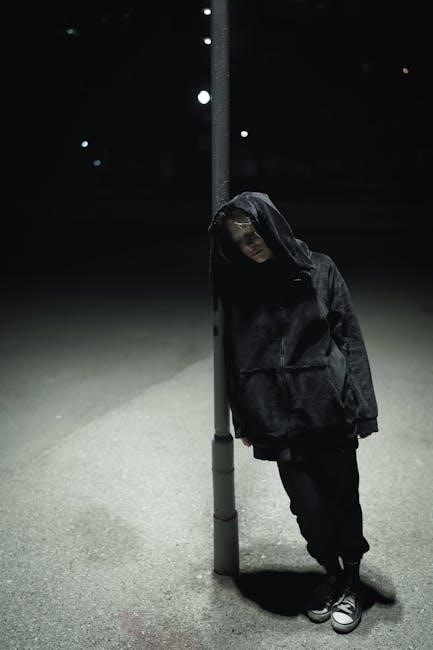
St. John of the Cross, a 16th-century Spanish mystic and poet, first introduced the concept of the dark night of the soul in his poem La Noche Oscura del Alma (Dark Night of the Soul). Written during his imprisonment for challenging Carmelite traditions, the poem captures the spiritual agony and transformation he endured. The original work was untitled and later interpreted as a metaphor for the soul’s journey through divine darkness to union with God. John of the Cross later wrote a commentary, dividing the experience into the night of the senses and the night of the spirit, detailing the purification of the soul. This poem became a cornerstone of Christian mysticism, offering profound insights into spiritual struggles and divine love, resonating beyond its historical context to inspire modern seekers of meaning and growth.
Development of the Concept Over Time
Over centuries, the dark night of the soul evolved from its roots in Christian mysticism to encompass broader spiritual and psychological interpretations. While St. John of the Cross initially framed it as a divine purification process, modern thinkers have expanded its meaning to include personal transformation and existential crises. Contemporary interpretations often blend psychological insights with spiritual themes, recognizing the dark night as a universal human experience. Some models now describe it in stages, such as awakening, purification, illumination, and union, offering a structured understanding of the journey. This evolution reflects the concept’s adaptability, making it relevant to diverse cultures and belief systems. As a result, the dark night of the soul has become a powerful metaphor for any individual facing profound life challenges and seeking renewal.

Theological Perspectives
The dark night of the soul, rooted in Christian mysticism, represents a divine purification process. It signifies spiritual growth through surrender and faith. Other traditions mirror this concept, reflecting its universal relevance.
Christian Interpretations and Teachings
In Christian theology, the dark night of the soul is a divine process of purification, as described by St. John of the Cross. It involves two phases: the dark night of the senses, where worldly desires are detached, and the dark night of the spirit, where deeper spiritual purification occurs. This journey is seen as a path to union with God, fostering humility, faith, and self-surrender. Christian teachings emphasize that this experience, though painful, is a necessary step toward spiritual maturity and intimacy with the divine. It is not a punishment but a transformative grace, guiding believers through darkness to profound spiritual awakening and renewal.
Views from Other Religious Traditions
Beyond Christianity, the concept of the dark night of the soul resonates in other spiritual traditions. In Buddhism, it parallels the “dark night” experience during intense meditation, where practitioners confront deep existential illusions. Sufism describes a similar journey, likening it to the lover’s suffering in separation from the Beloved, a path of surrender and spiritual refinement. Indigenous traditions often associate it with rites of passage, where individuals face darkness to emerge transformed. These diverse perspectives highlight the universal theme of navigating adversity to achieve spiritual growth and self-realization. The dark night, in these contexts, symbolizes a necessary trial of faith, resilience, and rebirth, transcending specific religious boundaries to speak to the human condition.
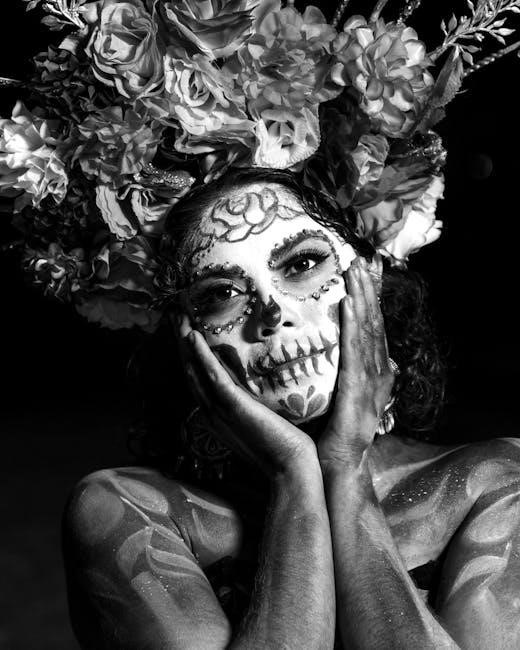
Psychological Interpretations
The dark night of the soul is increasingly studied in psychology as a transformative crisis, often linked to mental health challenges and emotional rebirth, offering deeper self-awareness and resilience.
Modern Psychological Applications
Modern psychology increasingly recognizes the dark night of the soul as a transformative crisis, often linked to mental health challenges and emotional rebirth. This concept, rooted in spiritual traditions, is now applied to understanding periods of intense personal struggle and existential questioning. Contemporary psychologists view it as a natural part of human development, where individuals confront their ego, meaning, and purpose. This experience can lead to deeper self-awareness, resilience, and emotional healing. Psychological frameworks, such as positive disintegration, align with the dark night’s themes of breakdown and renewal. Additionally, thinkers like Eckhart Tolle have popularized the idea of collapsing perceived meaning as a pathway to inner transformation. Thus, the dark night of the soul offers a profound lens for understanding and navigating modern mental health challenges.

Mental Health Aspects and Implications
The dark night of the soul has significant mental health implications, often manifesting as periods of spiritual depression, existential anxiety, or emotional turmoil. It can resemble a crisis of faith or identity, where individuals question their beliefs, purpose, and sense of self. Modern psychology recognizes this experience as a potential precursor to profound personal growth, though it can also coincide with mental health challenges like depression or anxiety. The emotional pain and feelings of abandonment during this phase may require professional support to navigate effectively. Understanding this experience through a mental health lens emphasizes the importance of addressing both spiritual and psychological dimensions to foster healing and resilience.
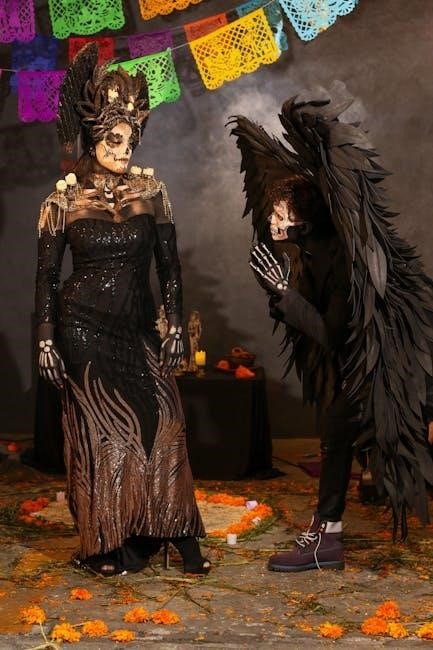
Stages of the Dark Night
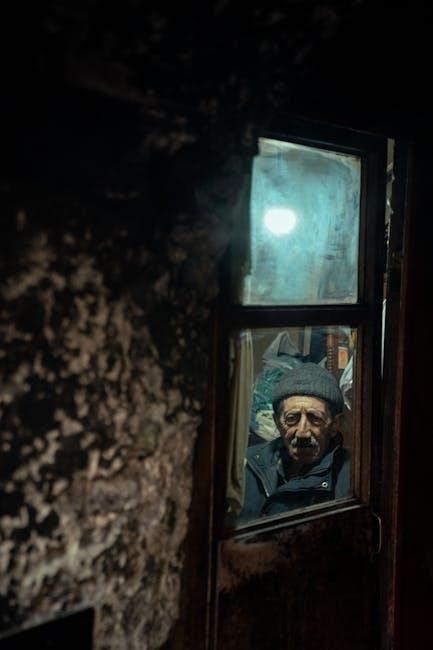
The dark night of the soul involves distinct stages of spiritual transformation, often marked by intense inner struggle and renewal. These phases guide individuals toward profound growth and deeper connection with their faith or self, ultimately leading to spiritual awakening and healing.
Traditional Stages as Described by Mystics
According to mystical traditions, the dark night of the soul unfolds in two primary stages: the Dark Night of the Senses and the Dark Night of the Spirit. The first stage involves detachment from worldly desires and pleasures, often accompanied by emotional pain and a sense of spiritual dryness. This phase cleanses the individual of superficial attachments, preparing them for deeper spiritual growth. The second stage is more profound, involving a purging of the soul and a sense of abandonment by God or a higher power. Mystics like St. John of the Cross describe this as a trial of faith, where the individual must surrender completely to divine will. These stages are not linear but rather a spiral of purification, leading to ultimate union with the divine and inner transformation.
Contemporary Models and Stage Theories
Modern interpretations of the dark night of the soul often expand on the traditional two-stage model, proposing additional phases that reflect contemporary psychological and spiritual understanding. Some contemporary models describe the journey as consisting of four stages: Awakening, Purification, Illumination, and Union. These stages emphasize personal growth, self-awareness, and transcendence. The dark night is also linked to concepts like “positive disintegration” and “post-traumatic growth,” where individuals emerge stronger and more whole after navigating profound challenges. Psychological frameworks view this process as a necessary step toward emotional and spiritual maturity, aligning with the idea of a transformative crisis. These modern perspectives offer a broader, more inclusive understanding of the dark night, making it relevant to diverse spiritual and cultural contexts.
Personal Growth and Transformation
The dark night of the soul catalyzes profound personal growth, fostering resilience, self-discovery, and spiritual renewal. It leads to deeper purpose, healing, and transformative self-awareness through adversity.
Spiritual Growth and Self-Discovery
The dark night of the soul is a transformative journey that fosters deep spiritual growth and self-discovery. It often begins with a sense of spiritual desolation, where one feels disconnected from their faith or higher purpose. This period of darkness, though painful, prompts introspection and a reevaluation of one’s beliefs and values. Through this process, individuals confront their inner struggles, letting go of ego-driven perceptions and embracing a more authentic, humble self. The experience ultimately leads to a renewed sense of purpose, a deeper connection to the divine, and a profound understanding of one’s true identity. This spiritual awakening is not a passive event but an active, often challenging, process of surrender and renewal.
Emotional Healing and Renewal
The dark night of the soul is a period of profound emotional healing and renewal, where individuals confront and release deep-seated wounds and patterns. This process often involves facing unresolved traumas, insecurities, and attachments that have hindered personal growth. Through this journey, one learns to let go of emotional baggage, fostering a sense of liberation and inner peace. The experience encourages self-compassion and acceptance, allowing individuals to embrace their vulnerabilities and integrate fragmented parts of their psyche. Emotional renewal emerges as old, limiting beliefs are replaced with a deeper understanding of oneself and the world. This transformative phase ultimately cultivates resilience, empathy, and a renewed capacity for love and connection, laying the groundwork for a more authentic and fulfilling life.
Coping Mechanisms
Navigating the dark night of the soul requires patience, self-compassion, and spiritual practices. Seeking guidance from mentors, engaging in mindfulness, and journaling emotions can provide comfort and clarity during this transformative period.
Practical Advice for Navigating the Dark Night
Navigating the dark night of the soul requires a combination of self-compassion, mindfulness, and intentional practices. Seek guidance from spiritual mentors or supportive communities to provide emotional and spiritual support. Engage in journaling to process emotions and identify patterns or insights. Practice mindfulness meditation to stay grounded and cultivate inner peace. Embrace solitude as an opportunity for reflection and self-discovery. Avoid rushing the process; allow yourself time to heal and grow. Lean on faith or personal beliefs to find meaning and purpose during the darkness. Remember, the dark night is a temporary phase leading to transformation and renewal.
The Role of Community and Support Systems
Community and support systems play a vital role in navigating the dark night of the soul. Surrounding oneself with empathetic individuals who understand the spiritual struggle can provide comfort and validation. Spiritual leaders, mentors, or therapists offer guidance and perspective, helping to alleviate feelings of isolation. Sharing experiences within a supportive community fosters a sense of connection and reduces the emotional burden. Friends and family can provide practical help and emotional encouragement, reminding the individual of their inherent value. Engaging with others who have endured similar journeys creates a space for shared wisdom and mutual support. Ultimately, community serves as a lifeline, reminding the soul that it is not alone in its transformative journey.
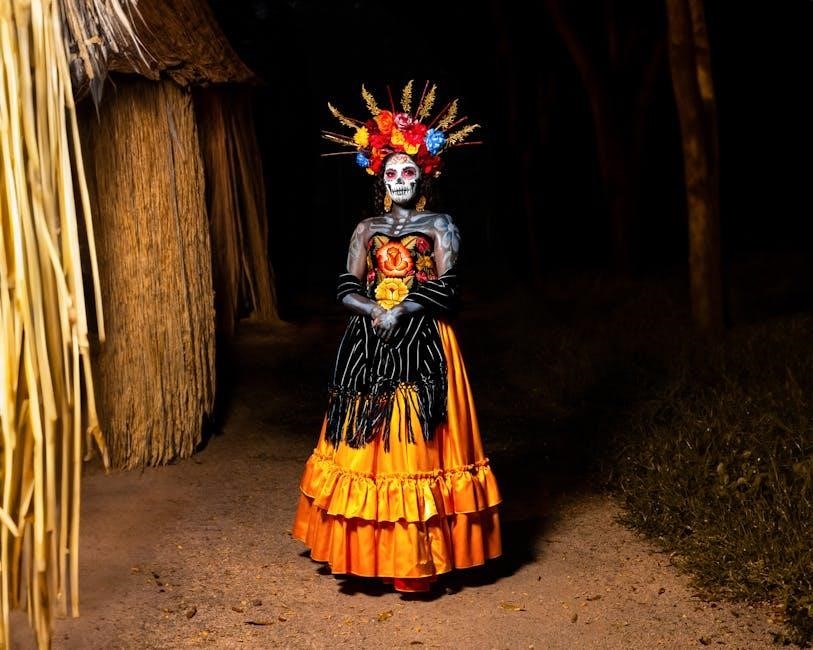
Cultural and Media References
The dark night of the soul has inspired films, music, and literature, reflecting its universal resonance. Works like the film Dark Night of the Soul and Danger Mouse’s album of the same name explore themes of resilience and transformation, while Loreena McKennitt’s adaptation of St. John of the Cross’s poem underscores its enduring cultural impact.
Portrayals in Literature and Film
The dark night of the soul has been vividly portrayed in various literary and cinematic works, capturing its essence as a transformative and often harrowing experience. In literature, St. John of the Cross’s original poem remains a cornerstone, while modern authors have reinterpreted the concept in novels and philosophical texts. Films like Dark Night of the Soul depict characters navigating existential crises and resilience, mirroring the spiritual struggle. Music, such as Loreena McKennitt’s adaptations, further amplifies its emotional depth. These portrayals resonate across mediums, illustrating the universal human journey through darkness to enlightenment, making the dark night a relatable and enduring theme in cultural expression and storytelling.
Influence on Music and Art
The dark night of the soul has profoundly influenced music and art, inspiring creative expressions of spiritual struggle and transformation. Musicians like Loreena McKennitt have adapted St. John of the Cross’s poetry into hauntingly beautiful songs, capturing the emotional depth of the journey. Similarly, albums such as Dark Night of the Soul by Danger Mouse and Sparklehorse reflect the theme’s resonance in modern music. In visual art, the concept is often depicted through symbolic imagery, such as darkness juxtaposed with fleeting light, representing the soul’s pilgrimage toward enlightenment. These artistic interpretations not only honor the original poetic roots but also expand the concept’s reach, making it a universal metaphor for personal and spiritual evolution across creative mediums.

Notable Figures and Their Experiences
Historical figures like Mother Teresa and Pierre Gascar endured the dark night of the soul, experiencing profound spiritual struggles and emotional pain. Their journeys highlight transformation and resilience, inspiring others to embrace the process of growth and renewal through darkness.
Historical Figures Who Underwent the Dark Night
St. John of the Cross, a 16th-century Spanish mystic, is the most iconic figure associated with the dark night of the soul. His poem and subsequent treatise describe his own harrowing spiritual journey. Mother Teresa also experienced an extended period of spiritual darkness, documented in her private letters, where she felt a profound sense of abandonment by God. Pierre Gascar, a former prisoner of war, wrote about his dark night during his brutal captivity, illustrating the universal nature of this experience. These figures exemplify how the dark night is not only a religious phenomenon but a deeply human one, transcending time and context to speak to the heart of existential struggle and transformation.
Modern Individuals and Their Journeys
In contemporary times, the dark night of the soul continues to resonate with individuals facing profound life challenges. Modern spiritual teachers like Eckhart Tolle describe it as a transformative phase of collapse and renewal. Personal accounts from everyday people, such as those losing jobs, relationships, or health, highlight its universal relevance. Some share their journeys through art and media, offering hope and resilience. For instance, the film Dark Night of the Soul portrays characters navigating existential crises, mirroring real-life struggles. These modern stories reflect the enduring nature of the dark night, demonstrating its adaptability to contemporary contexts and its power to inspire personal growth and deeper self-awareness in today’s world.
The dark night of the soul is a transformative journey from despair to spiritual awakening. It offers profound growth, self-discovery, and renewal, urging resilience and hope for those navigating its depths.
Final Thoughts on the Dark Night’s Significance
The dark night of the soul holds profound significance as a transformative experience, guiding individuals through spiritual and emotional upheaval to deeper self-awareness and renewal. Rooted in St. John of the Cross’s teachings, it symbolizes a universal human journey through darkness to light. This period of struggle, though painful, fosters growth, challenging individuals to reevaluate their beliefs and connect with their true selves. It emphasizes the importance of resilience and faith, offering hope for emergence stronger and wiser. The dark night is not an end but a new beginning, a testament to the human spirit’s capacity for transformation and renewal. Its relevance spans cultures, making it a timeless and deeply relatable concept in the pursuit of meaning and transcendence.
Encouragement for Those Experiencing It
Those navigating the dark night of the soul can find comfort in knowing this journey is temporary and transformative. It is a necessary phase for spiritual and emotional growth, even though it feels isolating and painful. Remember, this darkness is not a punishment but an invitation to deeper healing and renewal; Lean into faith, even when it feels shaky, and practice self-compassion as you confront inner doubts and fears. Seek support from trusted communities or mentors who understand this sacred process. Trust that the light will return, and when it does, you will emerge stronger, wiser, and more attuned to your true self. Patience and perseverance are key—this night is not forever, and its lessons will guide you toward a more authentic and meaningful life.
